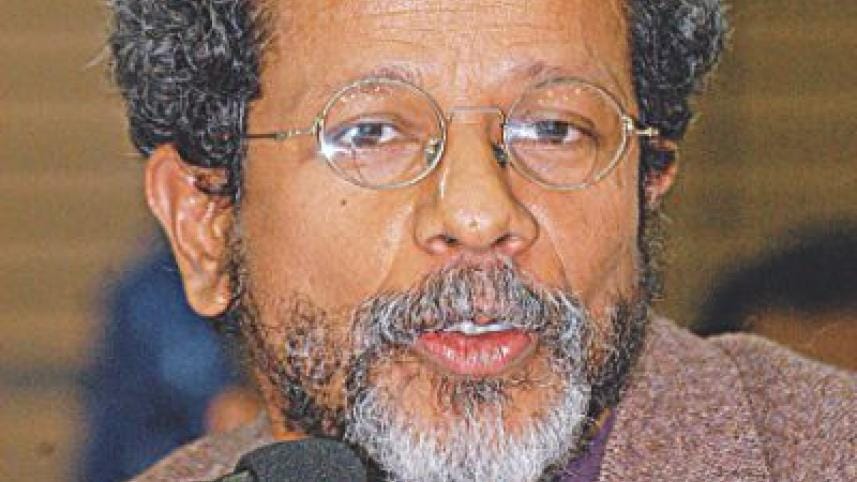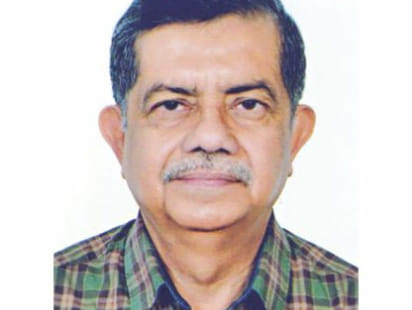Time for UNSC to show it cares

The UN Security Council, which is entrusted with ensuring global peace and security, has so far failed to protect the human rights of the persecuted Rohingya in Rakhine. As the delegation of the UNSC witnesses the massive human tragedy sites in Cox's Bazar of Bangladesh and Rakhine in Myanmar, two experts on international relations share their views with Porimol Palma of The Daily Star.
IMTIAZ AHMED
The United Nations Security Council's visit to the Rohingya camps in Cox's Bazar and the affected villages in Rakhine can add a new dimension to the way the crisis is being looked at by the international community, said Professor Imtiaz Ahmed of Dhaka University.
“There were persecutions against the Rohingya in Rakhine and Bangladesh saw waves of influx in the 1970s and 1990s. The Security Council delegation did not visit then. But it is visiting now. This means they have realised the gravity of the crisis,” he said.
He said the most important aspects of the visit were that they would learn of the ground realities, the aftermath of the atrocities and interact with the victims.
“I expect the delegation to objectively see the tragedies of the Rohingya and not depend on Myanmar's version,” Imtiaz, a professor of the international relations department, said.
The evidence of genocide against the Rohingyas in Myanmar is already there. It has become an international issue and not a bilateral one that only Bangladesh and Myanmar can solve, he said.
“The UNSC has a critical role to take Myanmar to the court and punish those responsible for the genocide,” said Imtiaz, also director at the Centre for Genocide Studies of Dhaka University.
UN had already demanded establishing a centre for collecting evidence, and the UNSC could begin the process for taking the perpetrators of genocide to the International Criminal Court.
In the 70s and 90s, there were not many international legal instruments to try the perpetrators of such crimes but now there are various tools, he added.
“Under this context, the role of UNSC is very important.”
Rohingyas have been facing persecution for decades and now is the time for a permanent solution.
“The Rohingya cannot go back home until Myanmar changes its laws to recognise them as citizens. They must go as citizens with full rights, not as illegal migrants as they are seen now,” the professor added.
The academic said the rare visit by the UNSC delegation meant a lot of pressure on Myanmar, but Bangladesh had to still continue mounting the pressure.
He suggested Prime Minister Sheikh Hasina visit China, India and Russia immediately to communicate the gravity of the tragedy and the need for a sustainable solution.
Bangladesh missions abroad should hold programmes, including conferences and photo exhibitions, to highlight the depth of the Rohingya crisis and create a stronger global opinion on the matter, he said.

CR ABRAR
It was redemption time for the UN Security Council, which had seen an erosion of people's trust in the world body for its failure in taking concrete actions against Myanmar, a country accused of genocide and ethnic cleansing, said Prof CR Abrar.
Since the Myanmar military crackdown which began in August last year, the UN Secretary General, Human Rights Council and some other UN organs, have issued strong condemnations against Myanmar.
Only some member countries, including China and Russia, have been reluctant in taking strong action against Myanmar, said Abrar, a professor of international relations at Dhaka University.
“Now that the UN Security Council members are visiting the Rohingya camps and will visit the Rohingya villages in Rakhine, they will surely learn of the actual scenario and act properly in punishing the perpetrators of the genocide,” he told The Daily Star yesterday.
The UNSC is the world's most powerful body which is responsible for ensuring peace and security anywhere in the world, he said.
“When you are a member of the UNSC, you cannot just look at your national interests. If you compromise the UN Human Rights Declaration, you are not morally fit for the membership to the UN Security Council,” said Prof Abrar, also executive director the Refugee and Migratory Movements Research Unit of Dhaka University.
“This is a chance for the UN Security Council to regain people's trust by truly acting properly for a true solution to the Rohingya crisis,” he said.
Stating that the UNSC delegation's visit to Bangladesh and Myanmar is very significant, the academic said the UN members who shrugged off the allegations of genocide against the Rohingya would be convinced of the atrocities in Rakhine.
After this visit, the members are expected to refrain from supporting Myanmar, he said.
Meanwhile, Abrar said, Bangladesh should tell China that it too has a lot at stake in Bangladesh-- whether those are business interests or the goodwill the peoples of both countries share.
Bangladesh should convince China to consider their interest as well as work to protect human rights of the Rohingya as a member of the UNSC, he said.
Bangladesh should come out of so-called bilateralism with Myanmar and unequivocally demand the UNSC to refer Myanmar's atrocities to the International Criminal Court.
“We have seen how Myanmar has time and again violated diplomatic norms. When only five Rohingya entered Myanmar from the no-man's land recently, it portrayed the event in such a way that repatriation has begun,” CR Abrar said.
Repatriation was supposed to begin on January 23. However, Myanmar officials placed new demands at the eleventh hour and then blamed Bangladesh for the delay. Also, the conditions in Rakhine were not conducive for a safe return of the Rohingya, he said.
As Myanmar showed they had no respect for diplomatic norms, Bangladesh should pursue the UNSC for strong actions, including trial of the perpetrators of genocide, Abrar said.



 For all latest news, follow The Daily Star's Google News channel.
For all latest news, follow The Daily Star's Google News channel.
Comments